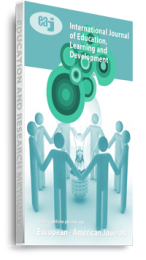This paper is an excerpt of a dissertation research whose purpose was to explore the relation of spirituality, work conditions and the job satisfaction of extensions study personnel in Kenya’s Christian higher education institutions. The paper however focuses on the relationship between spirituality, work conditions and job satisfaction. A mixed method approach to the study was employed. The perceptions of administrators and faculty of extension studies on the impact of spirituality and work conditions on their job satisfaction are sought. The study used the quantitative paradigm. Data was collected, using a survey instrument, from 146 administrators and faculty of extension studies from six selected Christian universities in Kenya. The causal-comparative design was applied and data were analyzed using the SPSS version 19. Overall, this study found that faculty members reported higher satisfaction with work itself compared to administrators (U = 792.50, z = -3.09, p < .01, r = -.31). Global job satisfaction scores were positively and significantly correlated to awareness of God scores (r = .28). There were differences in spirituality and job satisfaction related to some demographic factors such as gender, level of education, and years of as a Christian. Women had higher scores in awareness of God (U =1148.50, z = -3.41, p < .05, r = -.21) and integration of spirituality with work (U = 948.50, z = -2.21, p < .01, r = -.32) than men. Those with undergraduate level of education had higher scores in their emotional instability in their relationship with God (t[112] = 2.254, p < .05, r = -21) compared to those with graduate level of education. Those who were Christians for less than 35 years had higher scores in their instability in their relationship with God (scores (U = 1098.00, z = -2.79, p < .01, r = -.26). Moreover, faculty and administrators reported differences in some aspects of spirituality. In relation to level of work involvement, faculty members reported higher grandiosity scores (U = 929.50, z = -2.42, p < .017, r = -.24) than administrators. In relation to job rank, administrators reported higher scores in the disappointment with God subscale (U = 1033.00, z = -2.595, p < .01, r = -.24) than faculty members. Findings of the study are useful to faculty members, administrators and Christian higher education leaders in Kenya for enhancing the spirituality and job satisfaction of distance education personnel.
Keywords: Christian Higher Education Institutions., Distance Education Personnel, Job Satisfaction, Religion., Spirituality

